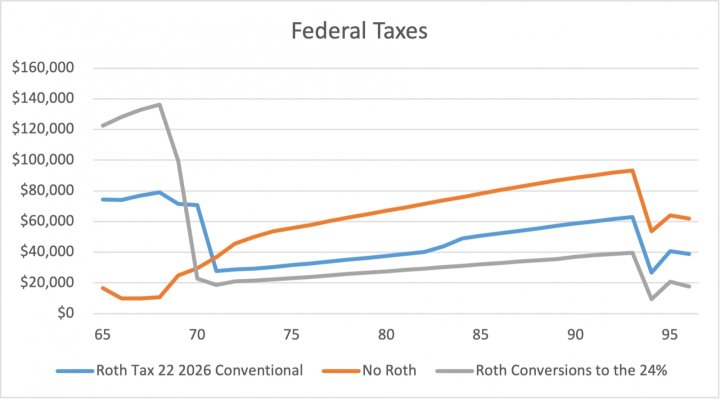Quick question for the group, I've seen a lot of references to ROTH conversions by a lot of folks who have FIREd here.
Im currently 49, planning to retire in ~10-12 years. I've been maxing out 401k for quite a bit now, and in the last several years started maxing out my Traditional IRA (Im up against income limits to contribute to a roth directly). Once a year I complete a backdoor conversion of my maxed out Traditional IRA to a Roth IRA.
Am I on the right track with this strategy? Are there benefits to leaving some of it in the Traditional IRA and not doing a backdoor conversion?
Im currently 49, planning to retire in ~10-12 years. I've been maxing out 401k for quite a bit now, and in the last several years started maxing out my Traditional IRA (Im up against income limits to contribute to a roth directly). Once a year I complete a backdoor conversion of my maxed out Traditional IRA to a Roth IRA.
Am I on the right track with this strategy? Are there benefits to leaving some of it in the Traditional IRA and not doing a backdoor conversion?

